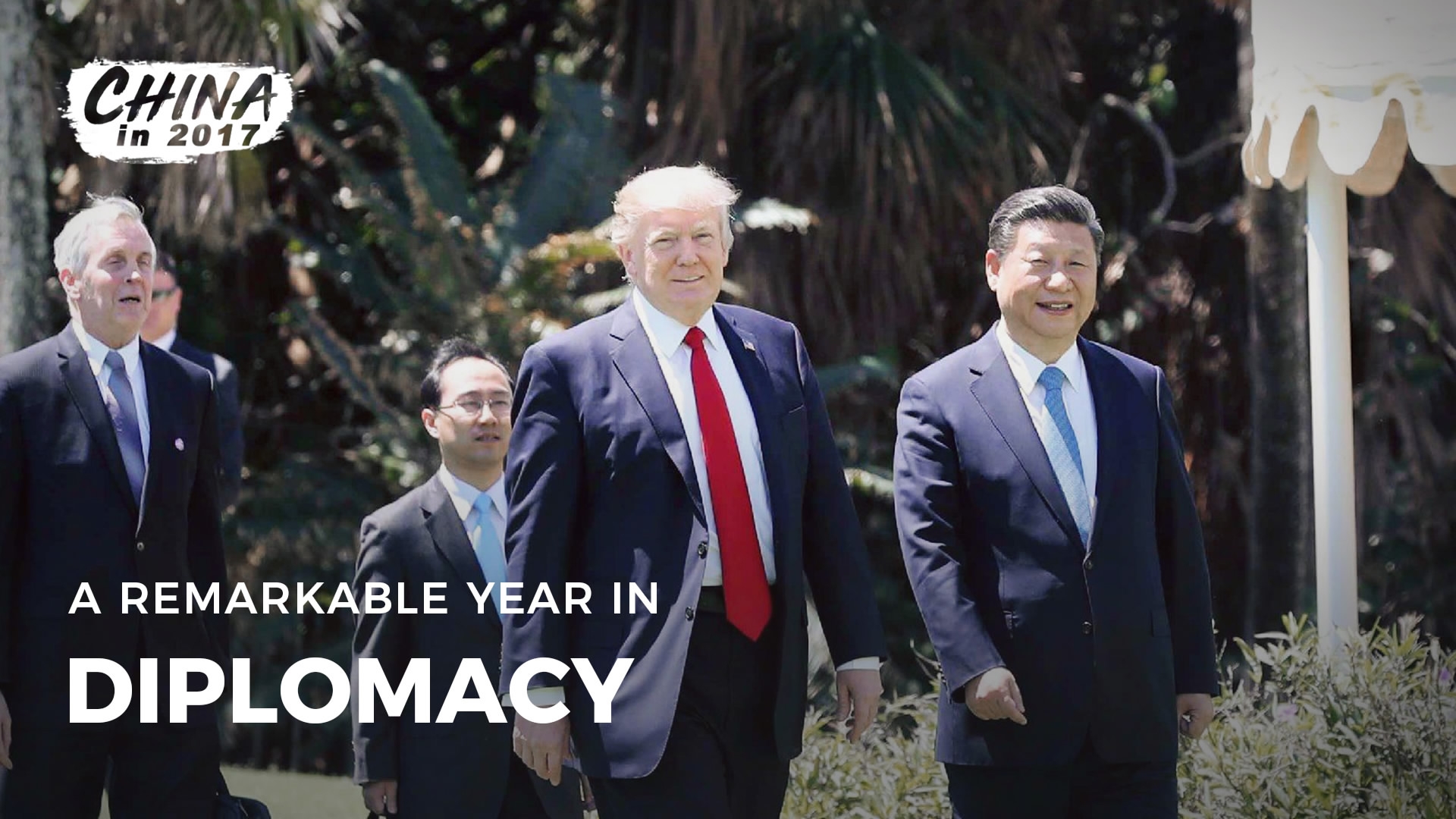"As long as we keep to the goal of building a community of shared future for mankind and work hand in hand to fulfill our responsibilities and overcome difficulties, we will be able to create a better world and deliver better lives for our peoples." - Xi Jinping
Led by President Xi Jinping, China in 2017 blazed a path of major-country diplomacy with Chinese characteristics.
From
Davos to
Geneva, and
Hamburg to
Da Nang, Xi proactively and confidently told China's story to the rest of the world.
The Chinese leader explained in his report to the 19th National Congress of the Communist Party of China in October that the country aimed to foster a new type of international relations and build a community with a shared future for mankind.
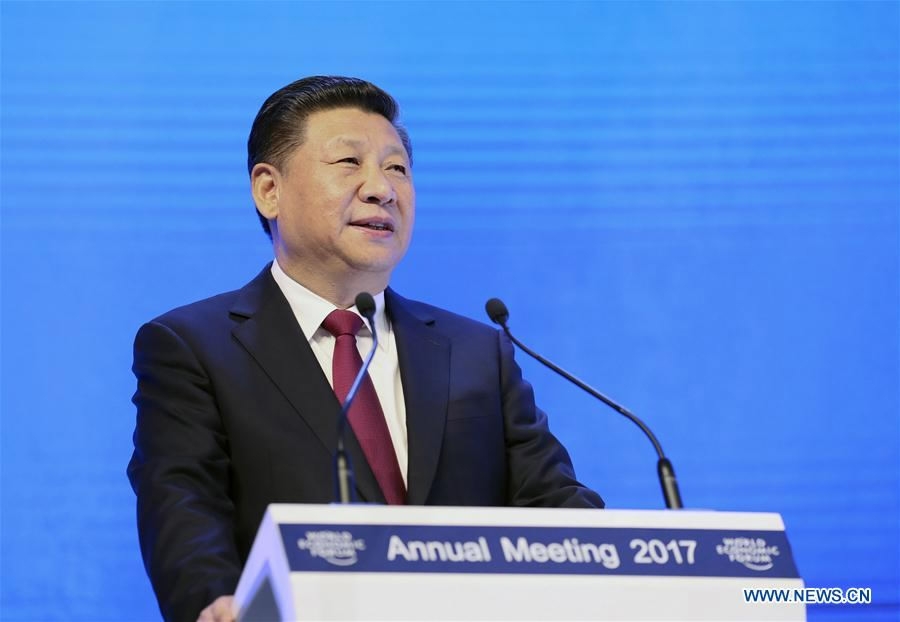
Chinese President Xi Jinping delivers a keynote speech at the opening plenary of the 2017 annual meeting of the World Economic Forum in Davos, Switzerland, Jan. 17, 2017. /Xinhua Photo
Chinese President Xi Jinping delivers a keynote speech at the opening plenary of the 2017 annual meeting of the World Economic Forum in Davos, Switzerland, Jan. 17, 2017. /Xinhua Photo
The "twin objectives" shine a light on China's diplomatic work in 2017.
New type of international relations
What is "new" about Xi's approach to international relations? Mutual respect, fairness, justice and win-win cooperation, according to Chinese Foreign Minister Wang Yi.
Xi visited eight countries in 2017, improving relations and promoting win-win ties with major powers, China's neighbors and developing nations.
Frequent interaction between President Xi and his Russian counterpart Vladimir Putin (the two met five times in 2017) lifted ties between Beijing and Moscow to new historic heights.
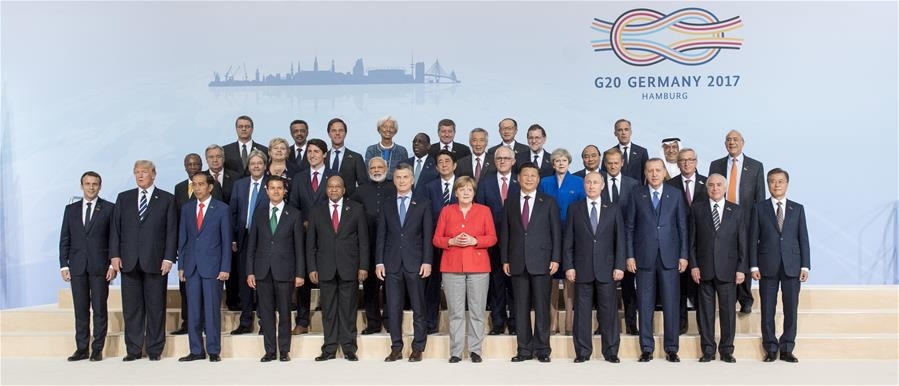
Chinese President Xi Jinping and other leaders attending the 12th Summit of the Group of 20 (G20) major economies pose for a group photo in Hamburg, Germany, July 7, 2017. /Xinhua Photo
Chinese President Xi Jinping and other leaders attending the 12th Summit of the Group of 20 (G20) major economies pose for a group photo in Hamburg, Germany, July 7, 2017. /Xinhua Photo
Meanwhile, China-EU ties developed steadily, based on peace, growth, reform, progress of civilization and mutually beneficial bilateral cooperation.
China has sought friendship with its neighboring countries, although the South China Sea issue sometimes strained ties. In 2017, through joint efforts between China and regional countries, an agreement was reached ahead of schedule on the framework of a
code of conduct (COC) in the South China Sea.
Despite obstacles in both
China-Japan and China-Republic of Korea (ROK) ties, China expressed willingness to work with both countries to bring bilateral ties back on the right track.
China and the ROK have reached a consensus over the THAAD anti-missile system issue, and President Moon Jae-in paid his first state visit to Beijing at the invitation of Xi in December.
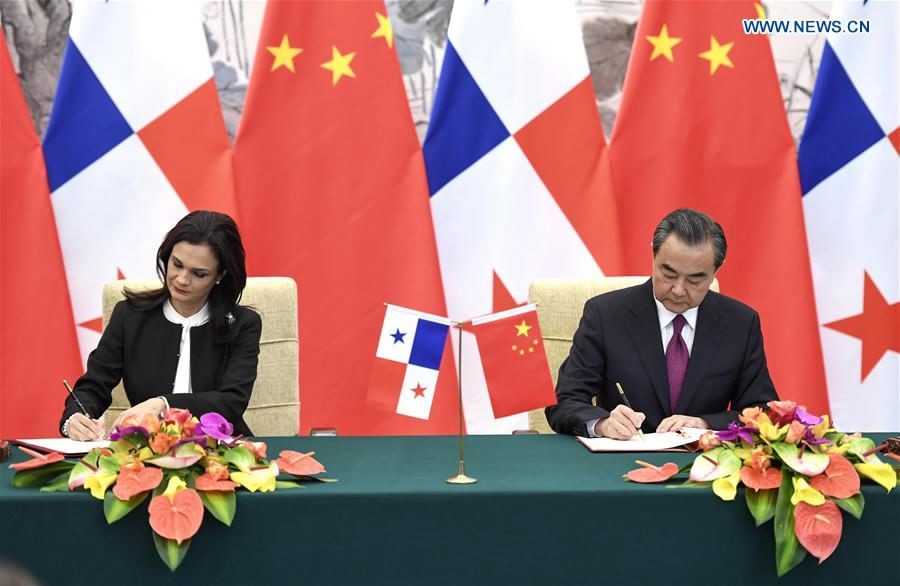
Chinese Foreign Minister Wang Yi (R) and Isabel Saint Malo de Alvarado, Panama's vice president and foreign minister, sign a joint communique in Beijing, China, June 13, 2017. /Xinhua Photo
Chinese Foreign Minister Wang Yi (R) and Isabel Saint Malo de Alvarado, Panama's vice president and foreign minister, sign a joint communique in Beijing, China, June 13, 2017. /Xinhua Photo
Sino-Indian relations experienced twists and turns due to the Dong Lang standoff. Through diplomatic means, China ensured a peaceful resolution.
Cooperation with developing countries in Africa and Latin America has grown, while China opened a new chapter in bilateral relations in June by
establishing diplomatic ties with Panama.
A community with a shared future for mankind
Xi's proposal to build a community with a shared future for mankind is not merely a slogan, but embodies China's multilateral diplomatic efforts in a year of global challenges.
From
WEF and
APEC to
G20 and
BRICS, the Chinese president has reaffirmed China's commitment to economic globalization, tackling climate change and maintaining global peace.
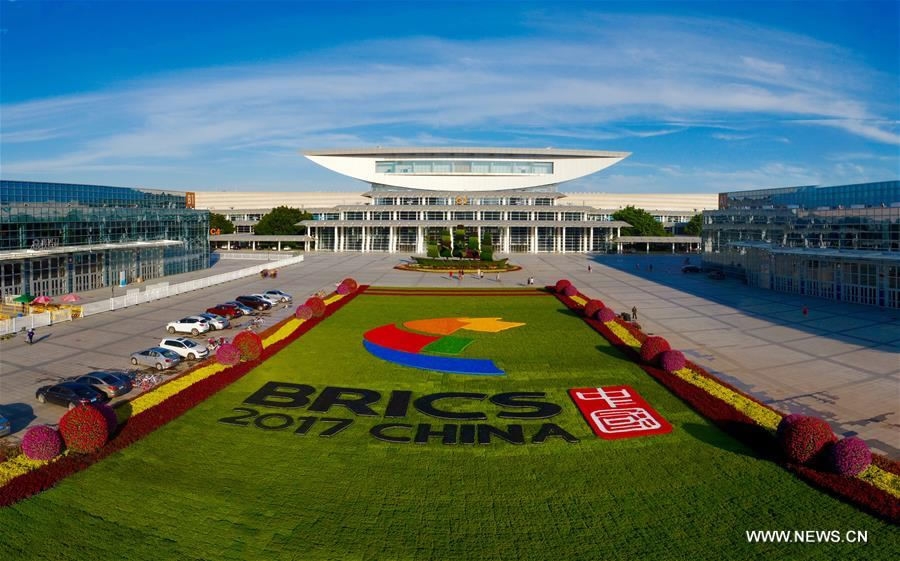
Xiamen International Conference and Exhibition Center in Xiamen, a scenic city in southeast China's Fujian Province, August 26, 2017. /Xinhua Photo
Xiamen International Conference and Exhibition Center in Xiamen, a scenic city in southeast China's Fujian Province, August 26, 2017. /Xinhua Photo
Building a community with a shared future for mankind is also reflected in the Xi-proposed Belt and Road Initiative.
In May, Xi chaired
the first Belt and Road Forum for International Cooperation (BRF) in Beijing. The Chinese foreign ministry said the forum was the most highly represented multilateral diplomatic event that China had ever initiated and hosted.
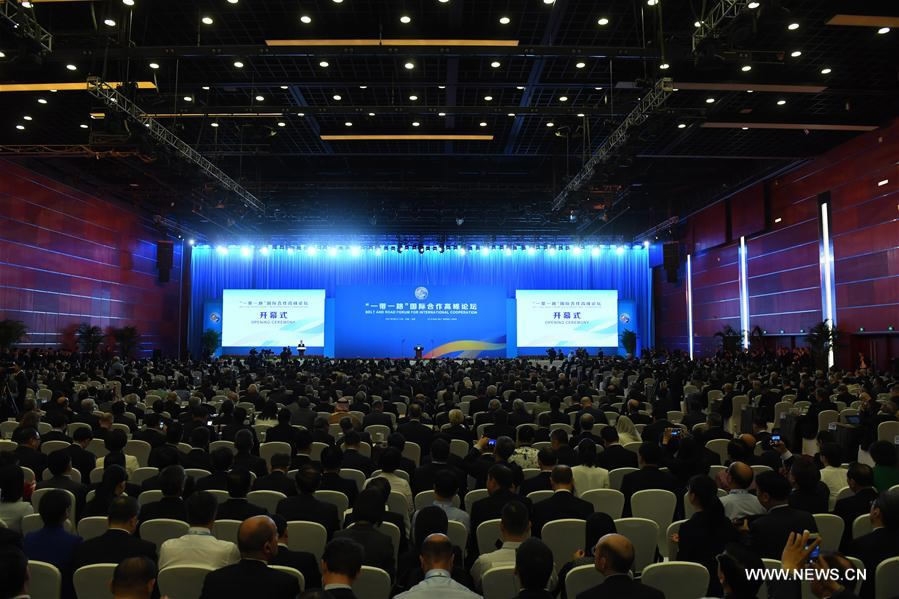
The Belt and Road Forum (BRF) for International Cooperation opens in Beijing, capital of China, May 14, 2017. /Xinhua Photo
The Belt and Road Forum (BRF) for International Cooperation opens in Beijing, capital of China, May 14, 2017. /Xinhua Photo
With over 270 specific results under 76 broad categories across five key areas produced at the BRF, China offered a great gift to the world: an international cooperation platform.
Tensions escalated on the Korean Peninsula in 2017, but China has actively worked for peaceful settlement and strictly implemented UN resolutions related to the Democratic People's Republic of Korea.
China continued its
support to the Paris Climate Change Accord after the US announced its intention to withdraw from the pact, and made huge contributions to
UN peacekeeping missions.
Foreign Minister Wang Yi articulated an epilogue on China’s 2017 diplomacy: "It is fair to say that we have taken stock of our achievements and broken new ground in China's diplomacy in the year of 2017."
Read more:

